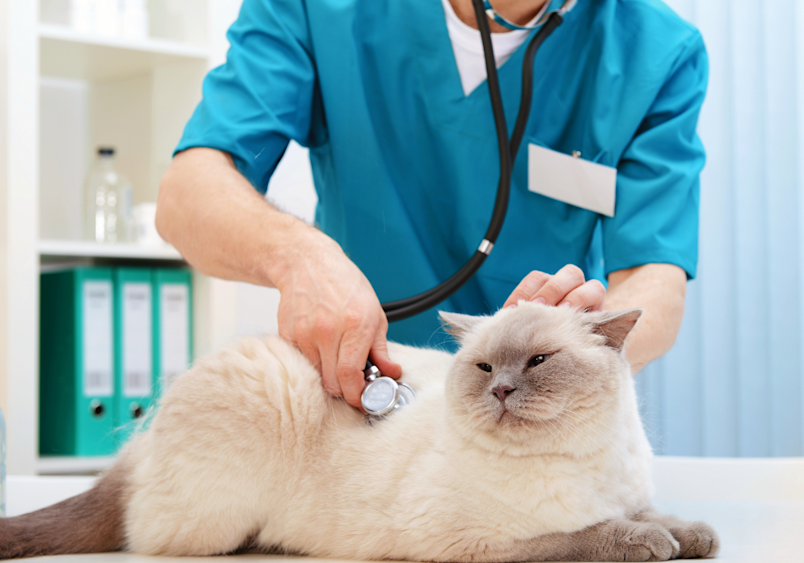
Friendly reminder: It might be time for your pet's annual wellness exam. See if you need to give your vet a call to schedule an appointment!
Ensuring your furry friend’s long-term health and happiness starts with regular veterinary check-ups. Whether you’re a proud cat parent, a devoted dog owner, or a new puppy parent, understanding the importance of pet wellness exams is key. Regular vet exams serve as the foundation of preventive care, helping catch potential health issues before they become serious concerns. In this guide, we'll explore everything about cat wellness exams, dog wellness exams, and puppy wellness exams to ensure your beloved pet stays healthy throughout every life stage.
Understanding Pet Wellness Exams
A pet wellness exam, sometimes called a "checkup" or "physical examination," is a comprehensive health assessment for pets who appear healthy. These preventive care visits allow veterinarians to establish baseline health measurements and spot changes that might indicate developing issues. Regular checkups ensure your pet is on the path to long-term health.
How Often Should Your Pet Have a Wellness Exam?
How often your pet needs a wellness exam depends on factors like their age, species, and overall health. Regular check-ups are important for monitoring changes, catching issues early, and ensuring they live a long, healthy life.
Cat Wellness Exam Schedules
Throughout their life, a cat's schedule for wellness exams will vary. While young kittens need frequent veterinary care, adult cats generally require fewer check-ups. As cats age, their health needs change, making regular visits essential for their well-being.
Kittens: Monthly wellness exams until 16-20 weeks of age
Adult cats (1-7 years): Annual wellness exams
Senior cats (8+ years): Twice-yearly wellness exams
Your Dog’s Wellness Exams
Regular wellness exams are the foundation of your dog’s healthcare - just like your annual physical with your doctor. These comprehensive veterinary checkups help catch potential health issues early and keep your furry family member thriving. Based on your dog’s life stage, here's how often you should take your dog to the vet for these important visits:
Puppies: Monthly wellness exams until 16-20 weeks
Adult dogs (1-7 years): Annual wellness exams
Senior dogs (7+ years): Twice-yearly wellness exams
Note: Large breed dogs may enter senior status earlier than small breeds
What to Expect During a Pet Wellness Exam
A pet wellness exam is a great way to ensure your furry friend stays happy and healthy. It’s a chance for your veterinarian to check on their overall well-being, catch any potential issues early, and discuss ways to keep them thriving. Here’s what you can look forward to during your visit:
Your Pet’s Physical Examination
During your pet’s wellness exam, your veterinarian will thoroughly assess their overall health, checking for any signs of illness and addressing their unique needs. This proactive approach helps ensure your pet stays happy, healthy, and thriving.
Vital Signs Assessment:
Temperature: Your vet will check your pet's temperature (normal: 101-102.5°F) to detect fevers or abnormal drops.
Heart rate: For dogs, it’s 60-140 bpm, and for cats, 140-180 bpm. Your vet will check for irregularities.
Breathing: Monitoring breathing rate (10-30 breaths/min at rest) to detect any issues.
Blood pressure: Especially in older pets, to check for high blood pressure that could harm organs.
Head-to-Tail Examination:
Mouth: Checking for bad breath, gum disease, broken teeth, or growths.
Eyes: Using a special light to check for vision issues or cataracts.
Ears: Inspecting for infections, mites, or wax buildup.
Lymph nodes: Checking for swelling that might indicate infection or illness.
Heart and lungs: Using a stethoscope to listen for heart murmurs or irregular breathing.
Abdomen: Gently palpating to feel abnormalities or tenderness.
Joints and legs: Moving joints to check for stiffness or early signs of arthritis.
Diagnostic Tests
Depending on your pet’s age, breed, and current health, your veterinarian may suggest specific tests, treatments, or lifestyle adjustments to address their unique needs. These recommendations are designed to support your pet’s well-being and catch potential issues early.
Complete blood count (CBC)
Biochemistry profile
Urinalysis
Thyroid hormone testing
Fecal examination
Heartworm testing
Additional screening tests for senior pets
Preventive Care Options Appropriate for Your Pets
During wellness visits, veterinarians carefully assess each pet's individual needs to create comprehensive preventive care plans tailored to their unique requirements. This personalized approach considers factors such as age, breed, lifestyle, and health history to ensure pets receive appropriate vaccinations, screenings, and preventive treatments.
Veterinarians can provide preventive care services, including core and lifestyle-based vaccinations, comprehensive parasite prevention strategies, and expert nutrition and weight management guidance.

Preparing for Your Pet's Wellness Exam
Make the most of your pet’s wellness exam by being prepared. Bring along any current medications or supplements they’re taking, and if your vet has requested it, collect a fresh stool sample for testing. Make a note of your pet’s diet, eating habits, and any recent changes in behavior, as these details can provide valuable insights into their well-being. Don’t forget to jot down any questions or concerns you have—this is your chance to address anything that’s been on your mind and help your pet thrive.
Why Regular Wellness Exams Matter
Regular wellness exams serve as the cornerstone of preventive healthcare, helping you maintain optimal health and catch potential issues early. These routine check-ups provide a valuable opportunity for healthcare providers to assess your pet’s overall wellbeing and work with you to develop personalized strategies for maintaining good health.
Regular veterinary checkups are important for your pet, as animals often instinctively mask signs of illness until conditions become severe. By maintaining a consistent schedule of preventive care, you can identify and address health issues early, which typically costs far less than treating advanced conditions.
The Value of Pet Insurance and Wellness Plans
While pet insurance typically covers accidents and illnesses, many providers, including Embrace Pet Insurance, offer wellness plans for your dogs and cats that can be added to a pet insurance policy to help manage the cost of preventive care. These plans are not insurance, but can help you budget for routine services like wellness exams, vaccinations, and diagnostic testing, making it easier to maintain your pet's preventive care schedule without financial stress.
Regular wellness exams are a cornerstone of responsible pet ownership. They help identify potential health issues early on, allowing for timely treatment and preventing more serious problems. For example, during a routine checkup, your vet might discover an underlying health condition like kidney disease or heart murmurs. If your vet finds something wrong, it could mean expensive surgery or treatment. This is where your pet insurance plan comes in.
By providing financial protection against unexpected veterinary costs, pet insurance can help you afford necessary treatments and medications. However, it's important to note that pre-existing conditions, or health issues that existed before your pet was insured, may not be fully covered. That's why it's crucial to enroll your pet in a pet insurance plan as early as possible to ensure maximum coverage.
Together for Every Tail Wag & Purr
At Embrace Pet Insurance, we're pet parents too, and we know that nothing matters more than keeping your furry family member healthy and happy. That's why we've designed our wellness plans and comprehensive pet insurance to work together with your veterinarian's preventive care recommendations. Think of it as a safety net that lets you focus on what really matters – enjoying life with your pet, knowing they'll have access to the best possible care throughout their journey with you.
By prioritizing regular wellness exams, you're investing in your pet's long-term health and happiness. A small effort today can lead to a lifetime of joy for both you and your furry friend. Schedule your pet's annual check-up today and give them the gift of a healthy future.